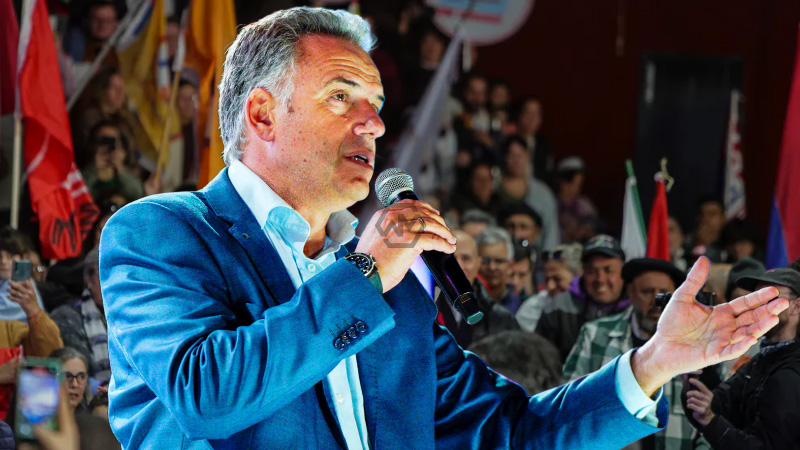- Alvaro Delgado, conservative candidate, is trailing in polls behind center-left rival Yamandú Orsi.
- Diego Ojeda, a rising third-party candidate, could play a pivotal role as a potential kingmaker.
- Ojeda’s growing appeal with fresh policies may either boost or challenge Delgado’s chances in the election.
Alvaro Delgado, Uruguay’s conservative presidential candidate, is finding himself in a tight race as he trails center-left opponent Yamandú Orsi in the polls.
. Delgado, a 55-year-old former senator, is positioning himself as the experienced, steady hand, but his campaign has struggled to capture voter enthusiasm in the way current President Lacalle Pou did in 2019.
Rising Third-Party Candidate Could Hold the Key to Uruguay’s Presidential Race
Ojeda’s fresh approach to politics, focusing on mental health, crime, and child poverty, has resonated with voters seeking change. While Ojeda downplays the traditional left-right divide, his alignment with many National Party ideas could benefit Delgado in a second-round scenario. Ojeda’s growing influence, however, poses a double-edged sword for the conservatives: while he could help Delgado consolidate votes, his rising numbers might edge Delgado out of the first round entirely.
Ojeda’s non-ideological stance taps into a broader trend seen across Latin America, where younger leaders are advocating for generational renewal rather than strict adherence to left or right ideologies. His success so far suggests that many Uruguayan voters are craving new leadership that prioritizes solutions over party politics. This shift could spell trouble for both Delgado and Orsi if Ojeda manages to secure enough votes to remain a strong contender through the first round.
For Delgado, Ojeda’s emergence complicates his path to the presidency. If Ojeda remains a third-place contender, his potential endorsement could be a valuable asset to Delgado’s campaign. However, if Ojeda’s momentum grows, it could see the dark horse candidate disrupt the entire election, potentially changing the course of Uruguay’s political future.
In Uruguay’s presidential race, Diego Ojeda’s third-party candidacy has injected uncertainty into an election that once seemed to favor established political figures.



